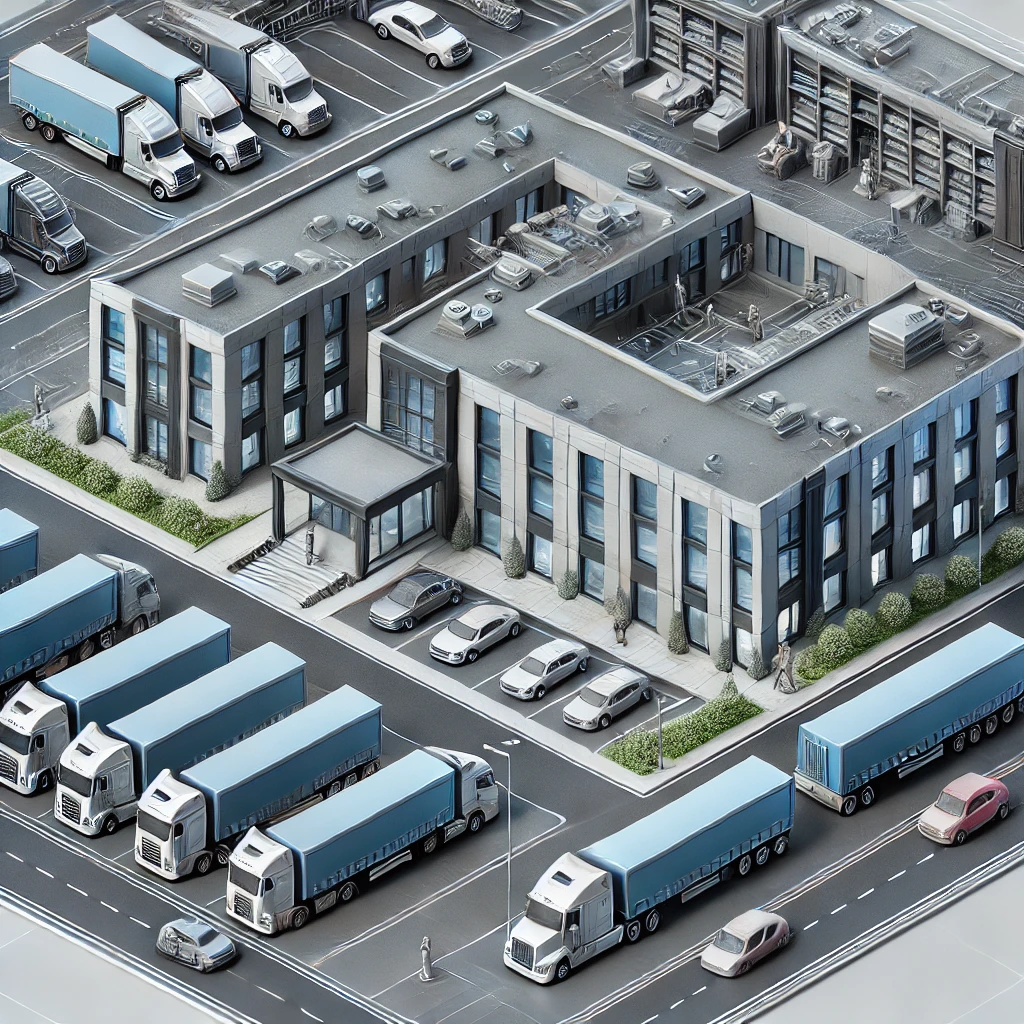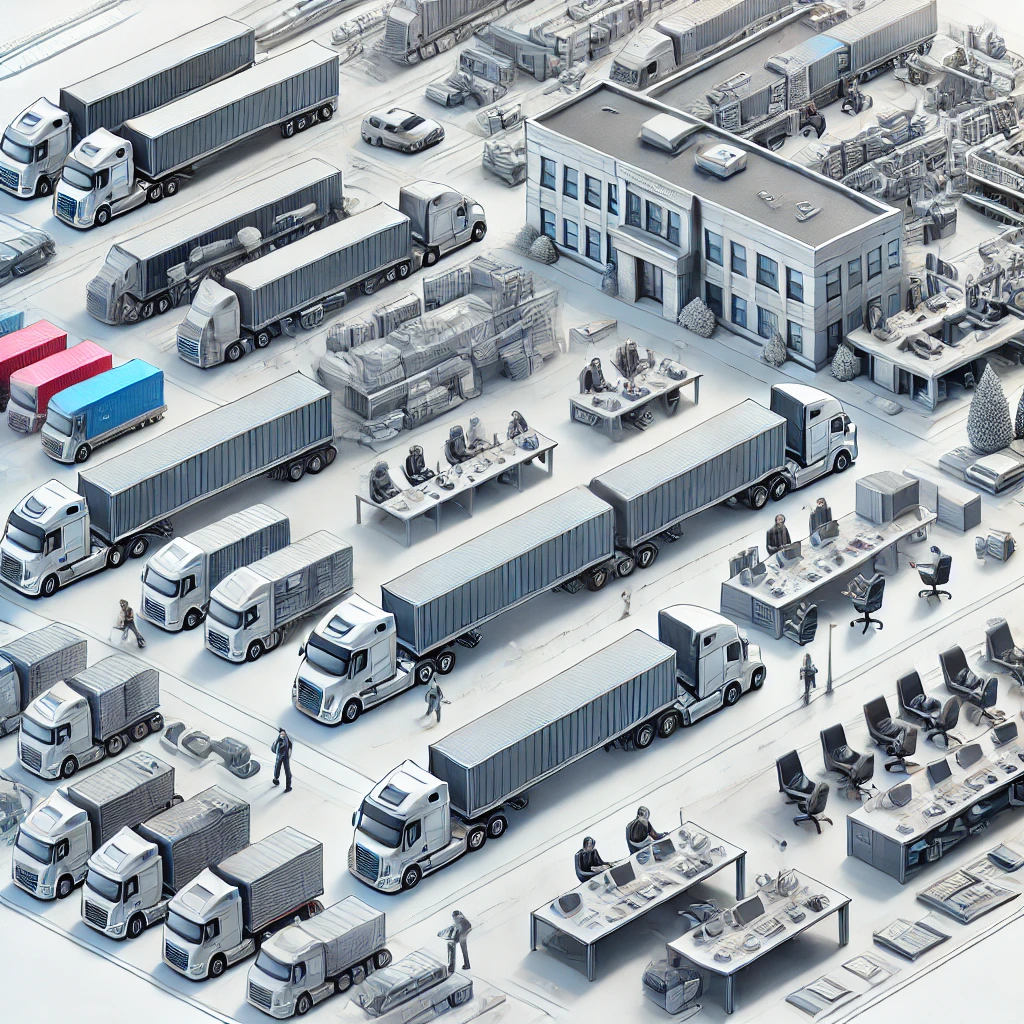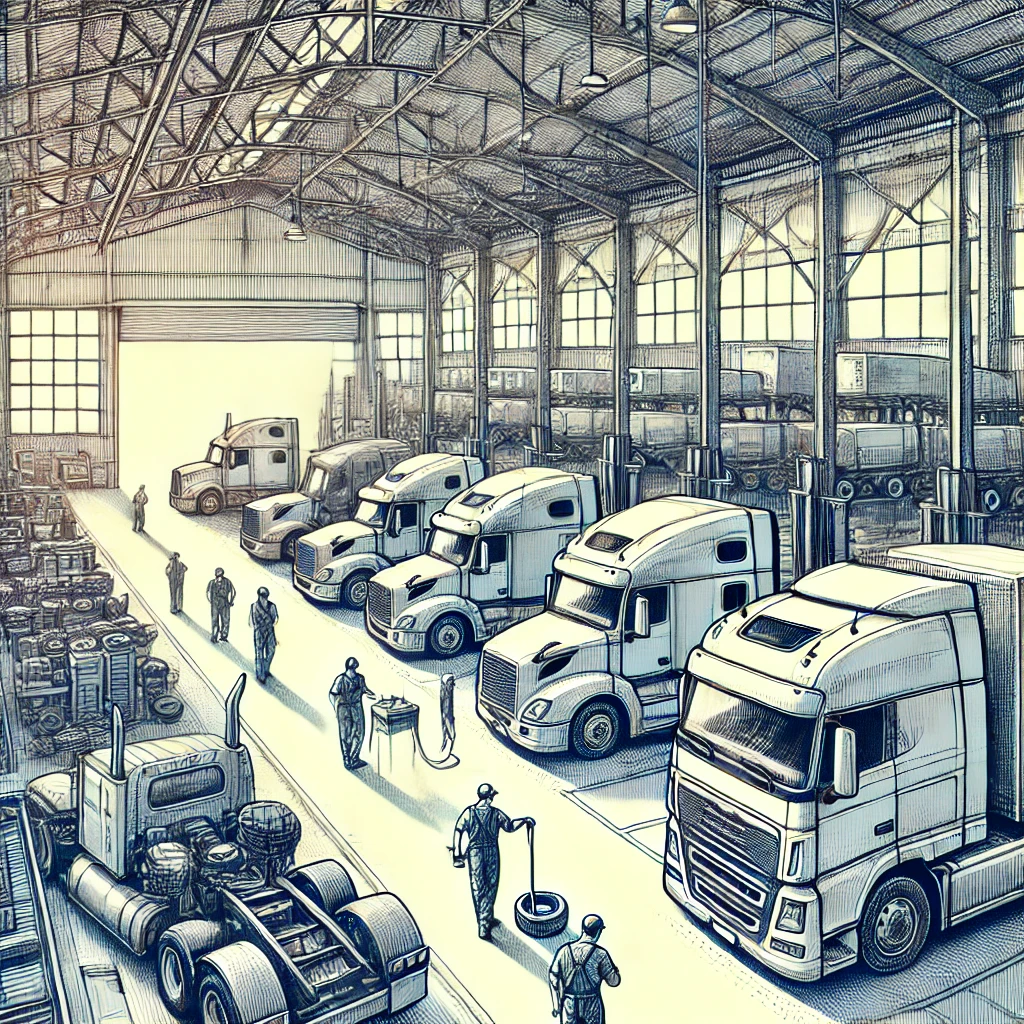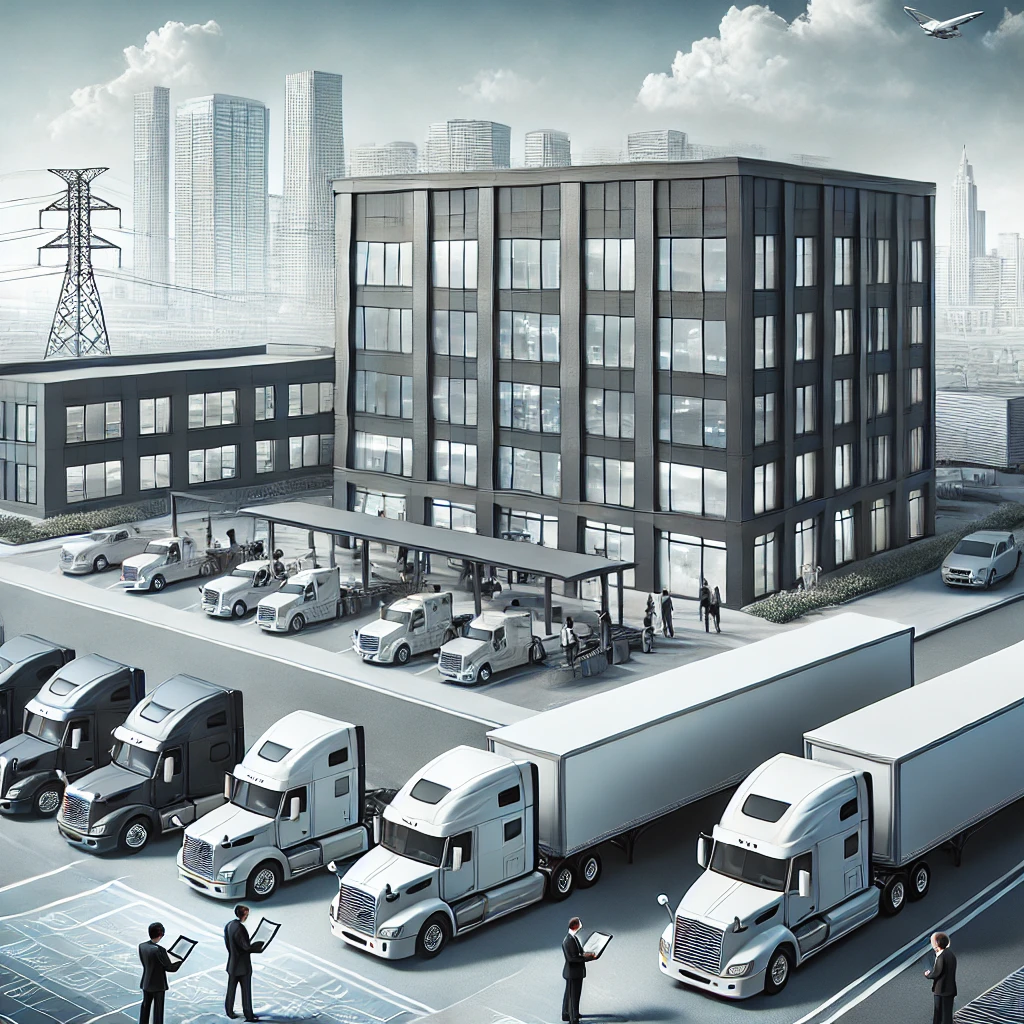Essential Questions to Ask Trucking Companies: How to start a truck stop business

For Job Seekers: Questions About Employment
If you’re considering a career in trucking how to start a truck stop business, ask these questions to potential employers:
- What types of routes do you offer (local, regional, long-haul)?
- This helps you understand the lifestyle and time away from home.
- What is your pay structure (per mile, hourly, salary, bonuses)?
- Understanding compensation is crucial for financial planning.
- How often can I expect to be home?
- Home time is a significant factor in work-life balance.
- What benefits do you offer (health insurance, retirement plans, paid time off)?
- Benefits can significantly impact your overall compensation package.
- What is the average age and condition of your fleet?
- Newer, well-maintained trucks can mean a more comfortable and reliable work environment.
For Shippers: Questions About Services and Reliability
If you’re looking to hire a trucking company for your shipping needs, consider these questions:
- What types of freight do you specialize in hauling?
- Ensures they have experience with your specific cargo needs.
- Can you provide references from clients with similar shipping needs?
- Helps verify their reliability and service quality.
- What is your on-time delivery rate?
- A key indicator of reliability and efficiency.
- How do you handle shipment tracking and status updates?
- Transparency in shipment status is crucial for planning and customer service.
- What is your claims process for lost or damaged goods?
- Understanding their liability and claims process is important for risk management.
- Do you offer any specialized services (temperature-controlled, hazmat, oversized loads)?
- Ensures they can handle any specific requirements you may have.
- What technology do you use for route optimization and load planning?
- Efficient routing can lead to faster deliveries and potentially lower costs.
- How do you handle unexpected delays or issues during transit?
- Their problem-solving approach can impact your operations.
- What are your pricing models and any additional fees?
- Helps in budgeting and comparing costs between providers.
- Do you offer any value-added services (warehousing, cross-docking, etc.)?
- Additional services can simplify your supply chain management.
For Business Partners: Questions About Collaboration
If you’re considering a business partnership or collaboration with a trucking company, ask these questions:
- What is your company’s long-term vision and growth strategy?
- Ensures alignment with your own business goals.
- How do you approach partnerships and what successful collaborations can you share?
- Gives insight into their partnership philosophy and track record.
- What mutual benefits do you see in a potential partnership?
- Helps identify synergies and shared value creation opportunities.
- How do you handle data sharing and protect sensitive information?
- Crucial for maintaining confidentiality and trust.
- What is your approach to problem-solving and conflict resolution in partnerships?
- Provides insight into how challenges might be handled.
- Can you describe your decision-making process for major business decisions?
- Helps understand how collaborative the partnership might be.

Industry-Specific Questions truck stop business how to start a truck stop business
These questions delve into the company’s position and operations within the trucking industry:
- What industry certifications or associations do you belong to?
- Indicates their commitment to industry standards and continuous improvement.
- How do you stay updated on and adapt to changing industry regulations?
- Shows their proactivity in compliance and adaptability.
- What is your approach to handling seasonal fluctuations in demand?
- Important for understanding their flexibility and capacity management.
- How do you manage relationships with brokers vs. direct shippers?
- Provides insight into their business model and client relationships.
- What strategies do you employ to combat the driver shortage issue?
- A critical industry challenge that affects service reliability.
- How do you handle cross-border or international shipments?
- Important for companies with global supply chains.
- What is your policy on detention times and accessorial charges?
- Helps understand potential additional costs and their fairness.
- How do you manage fuel costs and efficiency?
- Indicates their approach to cost management and environmental responsibility.
- What is your stance on the use of electronic logging devices (ELDs)?
- Shows their compliance with regulations and approach to driver management.
- How do you handle less-than-truckload (LTL) vs. full truckload (FTL) shipments?
- Important for understanding their service range and flexibility.
Financial and Business Health Questions how to start a truck stop business
Understanding the financial stability of a trucking company is crucial:
- Can you provide audited financial statements for the past few years?
- Helps assess the company’s financial health and transparency.
- What is your debt-to-equity ratio?
- Indicates the company’s financial leverage and risk.
- How has your revenue and profitability trended over the past 5 years?
- Shows the company’s growth trajectory and financial stability.
- What is your credit rating and have you ever defaulted on a loan?
- Provides insight into the company’s creditworthiness.
- How diverse is your client base? What percentage does your largest client represent?
- Helps assess the risk of client concentration.
- What is your cash flow situation and how do you manage working capital?
- Important for understanding the company’s liquidity and short-term financial health.
- Have you had any major capital expenditures recently or planned for the near future?
- Indicates investment in growth or modernization.
- What is your insurance coverage and have you had any major claims in recent years?
- Helps understand risk management practices.
Safety and Compliance Questions
Safety is paramount in the trucking industry. Here are key questions to ask:
- What is your current safety rating with the FMCSA?
- A direct indicator of the company’s safety record.
- How often do you conduct safety training for your drivers?
- Shows commitment to ongoing safety education.
- What is your accident rate per million miles driven?
- Provides a quantifiable safety metric for comparison.
- How do you ensure compliance with hours-of-service regulations?
- Important for legal compliance and driver safety.
- What technologies do you use to enhance vehicle and driver safety?
- Indicates investment in safety innovations.
- How do you handle and investigate safety incidents?
- Provides insight into their safety culture and improvement processes.
- What is your policy on distracted driving?
- Shows awareness and action on a critical safety issue.
- How often do you conduct vehicle maintenance and inspections?
- Crucial for preventing accidents due to vehicle failure.
- What is your drug and alcohol testing policy?
- Important for ensuring driver fitness and legal compliance.
- How do you monitor and improve driver behavior on the road?
- Indicates proactive approach to safety management.

Technology and Innovation Questions how to start a truck stop business
How to start a truck stop business understanding a company’s approach to technology can provide insight into their efficiency and future-readiness:
- What fleet management software do you use?
- Indicates their level of technological sophistication in operations.
- How do you use data analytics in your decision-making processes?
- Shows their approach to data-driven management.
- What is your strategy for adopting new technologies like AI or blockchain?
- Provides insight into their innovation mindset and future plans.
- How do you balance technology adoption with cybersecurity concerns?
- Important for understanding their approach to data protection.
- What technologies do you use for real-time tracking and visibility?
- Crucial for understanding their capability to provide up-to-date information.
- How are you preparing for the potential impact of autonomous vehicles?
- Shows their long-term planning and adaptability.
- What is your approach to API integration with client systems?
- Important for potential technological compatibility.
- How do you use technology to optimize route planning and fuel efficiency?
- Indicates their approach to operational efficiency.
- What mobile technologies do you provide for your drivers?
- Shows their commitment to driver support and efficiency.
- How do you stay informed about and evaluate new industry technologies?
- Provides insight into their process for technological advancement.
Environmental and Sustainability Questions how to start a truck stop business
With increasing focus on environmental issues to start a truck stop business, these questions are becoming more important:
- What is your company’s environmental policy?
- Provides an overview of their commitment to sustainability.
- How do you measure and reduce your carbon footprint?
- Shows practical steps towards environmental responsibility.
- Are you part of any green transportation initiatives?
- Indicates proactive engagement with environmental issues.
- What strategies do you employ to reduce fuel consumption?
- Important for both environmental and cost-efficiency reasons.
- Do you use any alternative fuel vehicles in your fleet?
- Shows investment in sustainable technologies.
- How do you handle waste management and recycling in your operations?
- Indicates broader environmental consciousness.
- What is your stance on and preparation for potential carbon pricing or emissions regulations?
- Shows foresight and adaptability to changing environmental policies.
- Do you have any sustainability certifications?
- Provides third-party validation of environmental efforts.
- How do you engage your employees in sustainability efforts?
- Indicates the depth of commitment to environmental issues.
- What are your long-term goals for improving environmental performance?
- Shows strategic thinking about sustainability.
Company Culture and Values Questions
Understanding a company’s culture and values is crucial for long-term relationships:
- What are your company’s core values and how do they manifest in daily operations?
- Provides insight into the company’s guiding principles.
- How do you promote diversity and inclusion in your workforce?
- Important for understanding their commitment to equality and diverse perspectives.
- What initiatives do you have for employee wellbeing and work-life balance?
- Shows their approach to employee satisfaction and retention.
- How do you handle employee feedback and suggestions?
- How to start a truck stop business openness to employee input and continuous improvement.
- What is your approach to corporate social responsibility?
- Shows their commitment to giving back to the community.
- How do you recognize and reward employee performance?
- Provides insight into their motivation and retention strategies.
- What is your management style and company hierarchy like?
- Important for understanding the work environment.
- How do you maintain company culture with a distributed workforce of drivers?
- Crucial for understanding how they build cohesion in a mobile workforce.
- What professional development opportunities do you offer employees?
- Shows investment in employee growth and long-term retention.
- How do you ensure ethical business practices throughout your operations?
- Important for assessing the company’s integrity and risk management.

Future Outlook and Growth Questions how to start a truck stop business
Understanding a company’s vision for the future can help you assess its long-term viability:
- What are your company’s growth projections for the next 5 years?
- Provides insight into their ambition and market outlook.
- How do you plan to adapt to changing market conditions and customer needs?
- Shows their flexibility and forward-thinking approach.
- What emerging markets or services are you considering entering?
- Indicates their plans for diversification and expansion.
- How do you see the role of trucking changing in the future supply chain?
- Shows their strategic thinking about industry trends.
- What major challenges do you foresee for the trucking industry, and how are you preparing for them?
- Indicates their risk assessment and preparedness.
- Are you considering any mergers, acquisitions, or major partnerships in the near future?
- Provides insight into potential structural changes.
- How are you investing in research and development?
- Shows commitment to innovation and improvement.
- What succession planning do you have in place for key leadership positions?
- Important for understanding long-term stability and continuity.
- How do you plan to attract and retain the next generation of trucking professionals?
- Crucial for addressing the industry’s workforce challenges.
- What do you see as your company’s main competitive advantage in the future market?
- Provides insight into their strategic positioning and value proposition.
How Linbis Logistics Software Enhances Trucking Operations
When discussing technology and operations with trucking companies, it’s valuable to understand how advanced logistics software like Linbis can optimize their operations. Here are some questions you can ask about how to start a truck stop business their use of logistics software, and how Linbis specifically can address these areas:
- What logistics software do you use for operations management?
- Linbis offers a comprehensive suite for managing all aspects of trucking operations.
- How do you handle real-time tracking and visibility for shipments?
- Linbis provides real-time GPS tracking and status updates for enhanced visibility.
- What is your process for optimizing routes and reducing empty miles?
- Linbis uses advanced algorithms for route optimization, helping to minimize empty miles and improve efficiency.
- How do you manage driver communication and dispatch?
- Linbis offers integrated communication tools and dispatch management features for seamless coordination.
- What systems do you have in place for managing compliance and documentation?
- Linbis provides comprehensive compliance management tools, including electronic logging device (ELD) integration and document storage.
- How do you handle invoicing and payment processing?
- Linbis streamlines the invoicing process with automated billing and integration with accounting systems.
- What analytics and reporting capabilities does your software provide?
- Linbis offers robust analytics and customizable reporting features for data-driven decision making.
- How do you manage fleet maintenance and vehicle performance?
- Linbis includes fleet management tools that track maintenance schedules and monitor vehicle performance metrics.
- What customer service features does your software offer?
- Linbis provides customer portals and communication tools to enhance client relationships and satisfaction.
- How scalable is your current software solution?
- Linbis is designed to scale with your business, accommodating growth in fleet size and operational complexity.
By asking these questions, you can gauge how well a trucking company leverages technology to enhance its operations. If they’re not using a comprehensive solution like Linbis, it might indicate an opportunity for improvement in their operational efficiency and service quality.
Conclusion
Asking the right questions is crucial when interacting with trucking companies, whether you’re a potential employee, customer, or business partner. These questions help you gain valuable insights into the company’s operations, values, financial health, and future outlook.
Remember these key takeaways:
- Tailor Your Questions: Focus on the areas most relevant to your relationship with the company.
- Look for Transparency: A reputable company should be willing to answer most of these questions openly.
- Consider the Big Picture: Don’t focus solely on one area; a well-rounded understanding is crucial.
- Follow Up: If answers are vague or unsatisfactory, don’t hesitate to ask for clarification or more details.
- Compare Responses: If possible, ask the same questions to multiple companies to benchmark responses.
- Trust Your Instincts: Pay attention to how questions are answered, not just what is said.
- Prioritize Safety and Compliance: These are non-negotiable in the trucking industry.
- Consider Technology Adoption: Companies using advanced solutions like Linbis Logistics software are often better positioned for efficiency and growth.
- Look to the Future: Understanding a company’s vision and adaptability is crucial in the rapidly evolving trucking industry.
- Evaluate Cultural Fit: Especially important for job seekers and long-term business relationships.
By using this comprehensive list of questions, you’ll be well-equipped to make informed decisions about working with, hiring, or partnering with trucking companies. Remember, the goal is not just to gather information, how to start a truck stop business but to use these insights to build successful, mutually beneficial relationships in the trucking industry.
Whether you’re embarking on a new career, seeking a reliable shipping partner, or exploring business collaborations, asking the right questions is your first step towards success in the world of trucking. Stay curious, stay informed, and let these questions guide you to make the best choices for your needs in this vital and dynamic industry.
